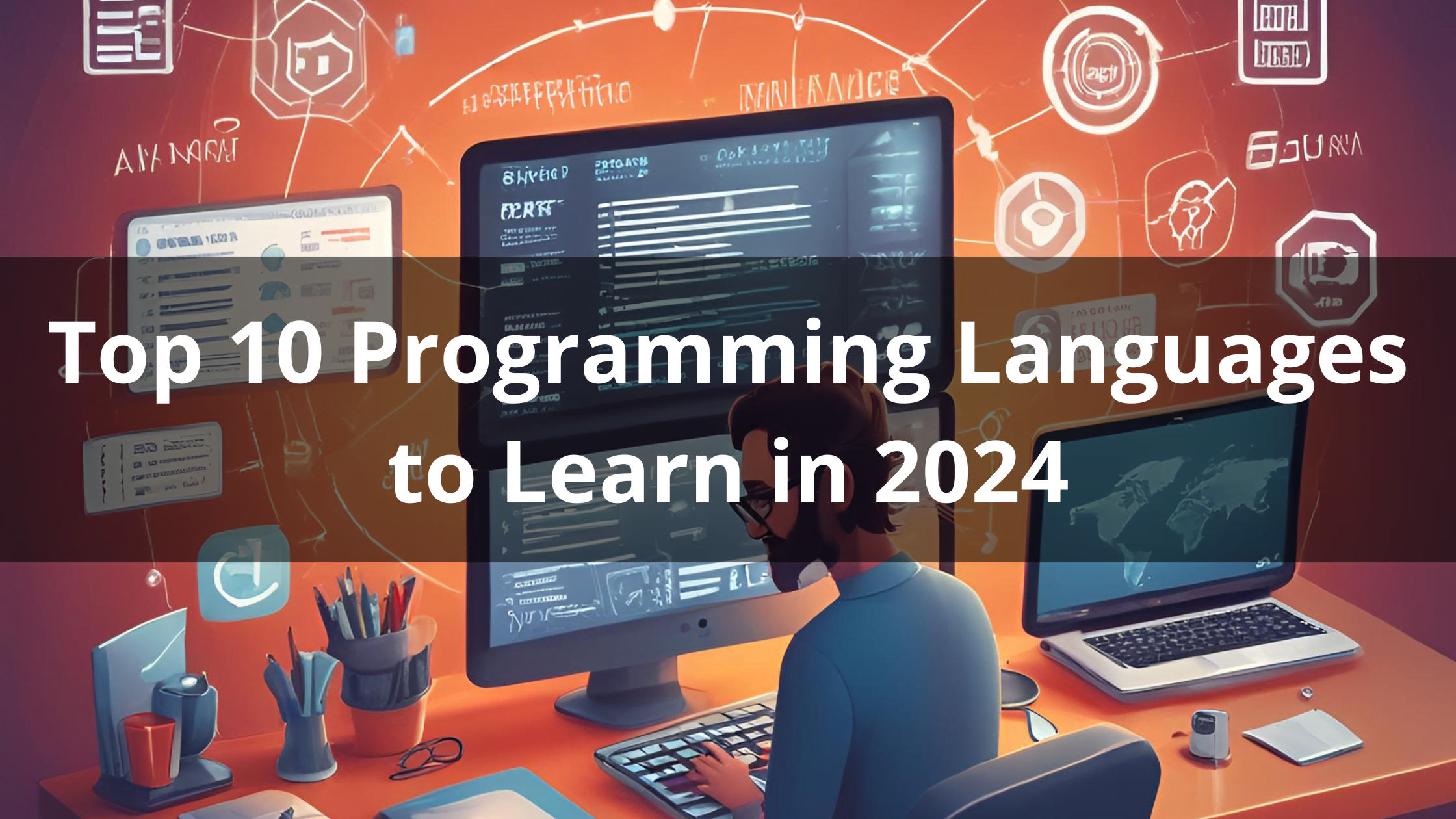Revolutionizing Reading: How AI Software is Enhancing E-Books

In the ever-evolving world of publishing and content consumption, the rise of e-books and digital products has ushered in a new era of reading experiences. As technology continues to advance, the integration of artificial intelligence (AI) software has revolutionized the way we interact with and consume digital content. This article will explore how AI-powered software is transforming the landscape of e-books, offering readers a more personalized, engaging, and accessible reading experience.
Key Takeaways
- AI-powered software is revolutionizing the e-book experience by providing personalized reading recommendations and enhanced comprehension and engagement.
- E-books and digital products encompass a diverse array of content, including audiobooks, e-learning materials, and multimedia content.
- AI-powered features like text-to-speech functionality and interactive annotations are enhancing the accessibility and inclusivity of e-books.
- The integration of AI in the publishing industry is providing data-driven insights to help authors and publishers create better content.
- The future of AI in the publishing industry promises even more immersive and interactive reading experiences, with personalized content curation and creation.
The Rise of E-Books and Digital Products
The shift from physical books to digital e-books has been a transformative process in the publishing industry. The advent of e-readers, tablets, and smartphones has made it easier for readers to access and consume content on the go, without the need for physical book storage. This evolution has paved the way for a diverse array of digital products, including online courses, software, audiobooks, e-learning materials, digital art, and multimedia content.
From Physical to Digital: The Evolution of Books
The transition from physical books to their digital counterparts, known as e-books, has been a significant shift in the publishing landscape. E-books offer readers the convenience of accessing a vast library of content at their fingertips, without the need for bulky physical volumes. This digital revolution has transformed the way readers discover, purchase, and consume their favorite literary works, ushering in a new era of virtual products and goods.
Advantages of E-Books: Convenience and Accessibility
The rise of e-books and digital products has brought about numerous advantages for readers. The convenience of being able to access a wide range of content on their preferred devices, whether it’s an e-reader, tablet, or smartphone, has made reading more accessible than ever before. E-books also offer enhanced features, such as the ability to adjust font size, brightness, and contrast, making the reading experience more personalized and accessible for users.
AI Software: Revolutionizing the E-Book Experience
The integration of AI software has revolutionized the e-book experience, offering readers a more personalized and engaging reading journey. Through the power of machine learning algorithms, AI-powered e-book platforms can now provide readers with innovative features that enhance comprehension, engagement, and overall reading satisfaction.
Personalized Reading Recommendations
Gone are the days of scrolling through endless e-book catalogs, searching for that perfect next read. AI-powered e-book platforms leverage user data and preferences to deliver tailored reading recommendations, ensuring that readers discover new e-books, audiobooks, and digital content that align with their unique interests and tastes. This personalized approach not only saves time but also fosters a deeper connection between the reader and the content they consume.
Enhanced Comprehension and Engagement
AI software has revolutionized the way readers interact with e-books, enhancing their overall comprehension and engagement. Through sophisticated natural language processing algorithms, AI-powered e-book platforms can now analyze a reader’s progress, identify areas of confusion, and provide personalized explanations, summaries, and contextual information to deepen their understanding of the content. This adaptive learning functionality ensures that readers stay engaged and actively participate in the reading experience, leading to improved knowledge retention and a more enriching literary journey.
E-books ,digital products
E-books and digital products have become increasingly prevalent in the publishing industry, offering readers a wide range of content beyond traditional printed books. This category encompasses a diverse array of digital offerings, including:
- Online courses that provide interactive learning experiences
- Audiobooks for on-the-go listening
- E-learning materials such as digital textbooks and educational resources
- Digital art and multimedia content for creative enthusiasts
- Software and virtual products that enhance productivity and creativity
These e-books and digital downloads offer readers a level of convenience, accessibility, and personalization that was once unimaginable with traditional physical books. As the demand for virtual products and online courses continues to grow, the publishing industry has embraced this shift, providing readers with a vast array of e-learning materials and multimedia content to explore and engage with.
AI-Powered Features for E-Book Readers
As the integration of artificial intelligence (AI) software continues to advance, e-book platforms are integrating a wide range of innovative features to enhance the reading experience for users. These AI-powered capabilities are transforming the way we interact with and consume digital content, making reading more personalized, engaging, and accessible than ever before.
Text-to-Speech Functionality
One of the standout AI-powered features in e-books is text-to-speech functionality. This technology leverages natural language processing (NLP) algorithms to convert the written text into high-quality audio narration. This feature not only benefits readers with visual impairments or dyslexia but also caters to those who prefer to listen to their e-books while commuting, multitasking, or engaging in other activities. The AI-powered text-to-speech capabilities ensure a seamless and natural-sounding audio experience, further enhancing the overall e-book experience.
Interactive Annotations and Highlighting
Another innovative AI-powered feature in e-books is the ability to create interactive annotations and highlighting. Using machine learning algorithms, e-book platforms can now analyze a reader’s reading patterns, preferences, and comprehension levels to provide personalized suggestions for annotations and highlights. This feature not only helps readers better engage with the content but also facilitates deeper understanding and retention. As readers interact with the text, the AI-powered system learns and adapts, delivering increasingly relevant and valuable annotations and highlighting tools to enhance the overall reading experience.
The Impact on Authors and Publishers
The integration of AI software in the e-book ecosystem has not only transformed the reading experience for consumers but has also had a significant impact on authors and publishers. By leveraging the power of AI-driven data analysis, these industry professionals can now:
Data-Driven Insights for Better Content Creation
AI-powered e-book platforms provide authors and publishers with valuable data-driven insights that can inform their content creation and marketing strategies. These insights include detailed information on reader preferences, engagement levels, and content consumption patterns. By analyzing this data, authors can tailor their e-books, digital downloads, and virtual products to better meet the needs and preferences of their audience. Similarly, publishers can use these insights to curate and promote their e-learning materials, audiobooks, and multimedia content more effectively, ensuring that their virtual goods resonate with readers.
Additionally, AI-driven content analysis can help authors and publishers identify emerging trends, popular topics, and underserved niches in the e-book and digital product market. This allows them to develop more targeted and compelling online courses, software, and other virtual offerings that align with consumer demand, ultimately driving increased engagement and sales.
| AI-Powered Insights for Authors and Publishers | Benefits |
|---|---|
| Reader Preferences and Engagement Patterns | Inform content creation and marketing strategies to better meet audience needs |
| Emerging Trends and Popular Topics | Develop more targeted and compelling digital products and offerings |
| Underserved Niches in the Market | Identify opportunities to create unique and innovative e-books, digital art, and other virtual goods |
Accessibility and Inclusivity in E-Books
One of the key advantages of AI-powered e-books is their potential to enhance accessibility and inclusivity in the reading experience. By leveraging AI technology, e-book platforms can now offer features and solutions that help overcome barriers for readers with disabilities.
Overcoming Barriers for Readers with Disabilities
For readers with visual impairments, AI-enhanced e-books can provide text-to-speech functionality, allowing the content to be narrated aloud. This feature not only benefits the visually impaired but also caters to individuals with learning disabilities or those who prefer to consume content through auditory means. Additionally, AI-powered e-books can offer customizable font sizes, high-contrast display options, and other accessibility features to ensure a comfortable and engaging reading experience for a diverse range of readers.
Fostering a More Inclusive Reading Experience
Beyond addressing the needs of readers with disabilities, AI-powered e-books can also promote a more inclusive reading experience by providing multilingual support, real-time translation, and the ability to adjust text complexity. These features enable e-books to cater to readers from diverse linguistic and educational backgrounds, making the content accessible and engaging for a global audience. Furthermore, AI-driven recommendations and personalization algorithms can suggest content that aligns with the reader’s interests, cultural preferences, and accessibility requirements, fostering a more inclusive and empowering reading experience.
By harnessing the power of AI, e-book platforms are revolutionizing the way readers with disabilities and diverse needs can access and engage with digital content. This shift towards greater accessibility and inclusivity not only enhances the reading experience but also promotes social equity and ensures that the benefits of e-books and digital downloads are available to all.
Challenges and Concerns Surrounding AI in E-Books
While the integration of AI software in the e-book ecosystem has brought about numerous benefits, it has also raised certain challenges and concerns that need to be addressed. One of the primary concerns is the potential for AI-powered algorithms to introduce biases and inaccuracies in the content recommendations and personalization features offered by e-book platforms.
There are also concerns around the protection of user privacy and data security, as the personalization algorithms rely on collecting and analyzing user data to provide tailored recommendations. Readers may be hesitant to share their reading preferences and habits if they feel their personal information is not being properly safeguarded.
Additionally, the integration of AI software in e-books raises questions about the potential impact on the creative process of authors and the traditional publishing industry. There are fears that the data-driven insights provided by AI may influence the content creation process, potentially leading to a homogenization of e-book offerings and a loss of artistic expression.
Finally, the accessibility and inclusivity of AI-powered e-book features must be carefully considered. While AI-enabled text-to-speech and enhanced accessibility options can greatly benefit readers with disabilities, it is crucial to ensure that these features are designed and implemented with the needs of all users in mind, including those with diverse cognitive and physical abilities.
| Challenges | Concerns |
|---|---|
| Potential for algorithmic bias and inaccuracies in content recommendations | Protection of user privacy and data security |
| Impact on the creative process of authors and the traditional publishing industry | Ensuring accessibility and inclusivity of AI-powered features |
The Future of AI in the Publishing Industry
As the integration of AI software continues to evolve, the future of the publishing industry promises even more innovative and transformative reading experiences. Some of the emerging trends and possibilities include:
Immersive and Interactive Reading Experiences
AI-powered e-books and digital content will continue to push the boundaries of what’s possible, offering readers truly immersive and interactive experiences. Through enhanced virtual reality (VR) and augmented reality (AR) capabilities, readers will be able to step into the worlds of their favorite e-books, engaging with characters and environments in ways that were previously unimaginable. This level of interactivity will not only captivate readers but also redefine the boundaries between passive consumption and active participation in the storytelling process.
Personalized Content Curation and Creation
The future of AI in publishing will also see a significant shift towards highly personalized content curation and creation. Leveraging advanced machine learning algorithms, AI software will be able to analyze individual reading preferences, habits, and behaviors, delivering a tailored selection of e-books, audiobooks, online courses, and other digital products that cater to each reader’s unique interests and needs. Furthermore, AI will play a crucial role in the content creation process, assisting authors and publishers in developing stories, characters, and narratives that resonate more deeply with their target audiences.
Embracing AI: A Paradigm Shift in Reading
The integration of AI software in the e-book ecosystem represents a significant paradigm shift in the way we approach and consume digital content. By embracing this transformative technology, readers, authors, and publishers can unlock a new era of reading experiences that are more personalized, engaging, and accessible.
For readers, AI-powered e-books offer personalized recommendations, enhanced comprehension, and even immersive features like text-to-speech and interactive annotations. This level of customization and interactivity empowers individuals to tailor their reading experiences to their unique preferences and needs, whether they are exploring e-books, digital downloads, or a wide range of other virtual products.
From the perspective of authors and publishers, AI-driven data analysis provides valuable insights that can inform the creation of more engaging and relevant online courses, software, audiobooks, e-learning materials, digital art, and multimedia content. By leveraging these insights, industry professionals can tailor their virtual goods to better meet the evolving demands of their audience, ultimately enhancing the overall reading experience.
As we continue to embrace the transformative power of AI in the publishing industry, we are poised to witness an unprecedented level of innovation and progress in the way we consume and interact with digital content. The future of reading is undoubtedly bright, with AI-enhanced e-books leading the way towards a more personalized, engaging, and accessible literary landscape.
Educational Applications of AI-Enhanced E-Books
As the integration of AI software revolutionizes the e-book landscape, its impact extends far beyond the realm of leisure reading. The educational sector has embraced the transformative potential of AI-enhanced e-books, paving the way for a new era of adaptive learning and personalized instruction.
Adaptive Learning and Personalized Instruction
AI-powered e-book platforms can now analyze a student’s learning patterns, comprehension levels, and areas of interest to tailor the educational content accordingly. By leveraging machine learning algorithms, these e-books can adjust the pace, depth, and delivery of the material to meet the unique needs of each individual learner. This personalized approach not only enhances engagement but also ensures that students grasp the concepts more effectively, ultimately improving their academic performance.
Gamification and Engaging Learning Experiences
In the digital age, where attention spans are often limited, AI-enhanced e-books are incorporating gamification elements to make the learning process more interactive and captivating. Through the integration of interactive quizzes, puzzles, and simulations, these e-books transform the traditional educational experience into an immersive, engaging, and rewarding journey. By tapping into the inherent human desire for challenge and achievement, AI-powered e-books can foster a sense of accomplishment and motivation in students, driving them to explore and master the content with greater enthusiasm.
The educational applications of AI-enhanced e-books are reshaping the landscape of digital learning, empowering students and educators alike. As we continue to witness the advancements in this field, the future holds the promise of a more personalized, engaging, and effective educational experience for all.
FAQ
The shift from physical books to digital e-books has brought about several advantages, including increased convenience, accessibility, and portability. E-books allow readers to access a vast library of content on their devices, without the need for physical storage or transportation.
The integration of AI software has revolutionized the e-book experience by offering personalized reading recommendations, enhanced comprehension and engagement, and advanced accessibility features. AI-powered e-book platforms can now provide readers with a more personalized and immersive reading journey.
The e-book and digital content category encompasses a diverse array of offerings beyond traditional printed books, including online courses, software, audiobooks, e-learning materials, digital art, multimedia content, and various virtual goods.
Some of the innovative AI-powered features being integrated into e-books include text-to-speech functionality, interactive annotations and highlighting, and advanced recommendation algorithms to provide personalized content suggestions.
By integrating AI software, authors and publishers can now access data-driven insights to better understand reader preferences, optimize content creation, and improve overall marketing and distribution strategies.
While the benefits of AI in e-books are substantial, there are also concerns around data privacy, algorithmic bias, and the potential impact on the creative process for authors and publishers.
The future of AI in the publishing industry promises even more innovative and transformative reading experiences, including immersive and interactive e-books, personalized content curation and creation, and adaptive learning solutions for educational applications.
AI-powered e-book platforms are leveraging technology to overcome barriers for readers with disabilities, including features like text-to-speech, customizable display options, and personalized reading experiences tailored to individual needs.
Related Posts

Top 10 Programming Languages to Learn in 2024
Explore the economic impact of AI in healthcare through cost savings, revenue generation opportunities, and improved patient experiences.

Evaluating the Economic Impact of AI in Healthcare
Explore the economic impact of AI in healthcare through cost savings, revenue generation opportunities, and improved patient experiences.

Tracking Team India in Cricket World Cup T20 2024
Together, let’s cheer, support, and celebrate the spirit of cricket as Team India blazes a trail towards victory in the Cricket World Cup T20 2024.

T20 Turf Talk: Daily Dose of Cricket World Cup 2024 Updates
Cricket World Cup 2024 schedule: Discover the complete schedule for Cricket World Cup 2024.
